
Information about the adoption of the euro
Important information
All funds in accounts are automatically converted free of charge at the official exchange rate of 1.95583 BGN per EUR. All card payments are now in EUR, and only EUR can be withdrawn from ATMs.
Until January 31, 2026, only BGN can be deposited at DSK Bank ATMs with a deposit function, free of charge.
Until January 31, 2026, payments can also be made in BGN, but only in cash.
Until June 30, 2026, anyone can exchange EUR banknotes and coins free of charge at any bank or Bulgarian Post Office at the official exchange rate.
We accept coins sorted by nominal value.
You can exchange BGN for EUR at any DSK Bank branch, except for cashless branches. For amounts over 30 000 BGN, a standard advance request of three business days is required.
If you are not yet a customer of DSK Bank and are planning to visit an office, you need to prepare documents.
The BNB exchanges BGN banknotes and coins into EUR free of charge, in unlimited quantities and without time limits, at the official exchange rate.
Until January 31, 2026, only BGN can be deposited at DSK Bank ATMs with a deposit function, free of charge.
What euro banknotes look like
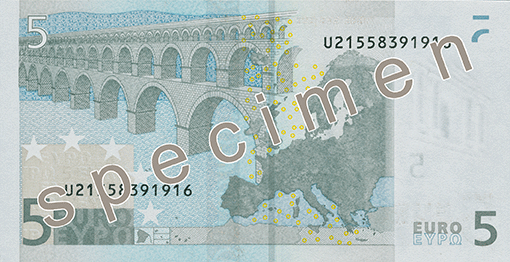
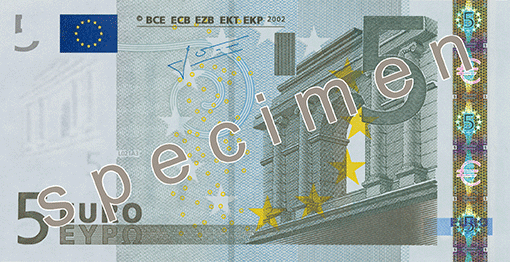
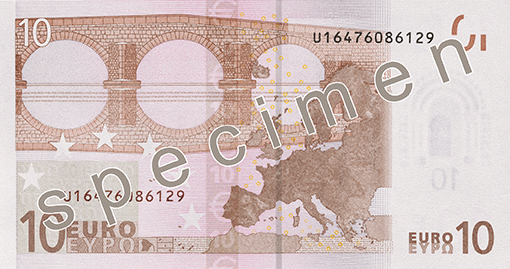
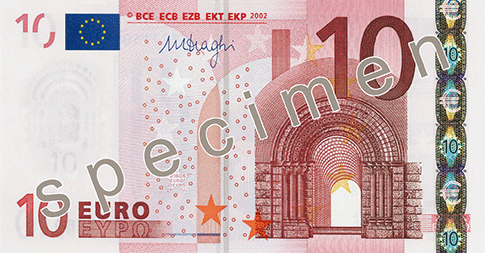
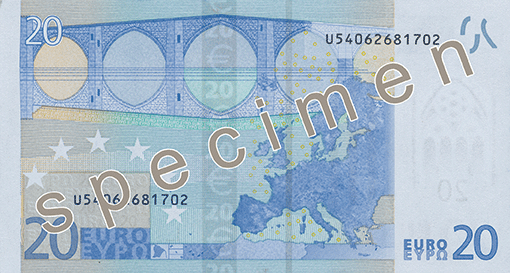
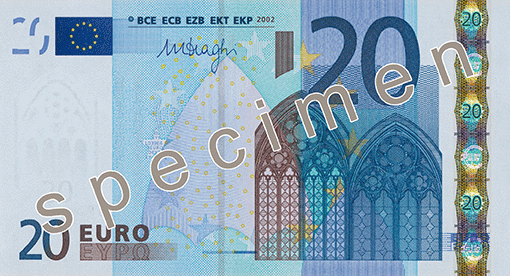
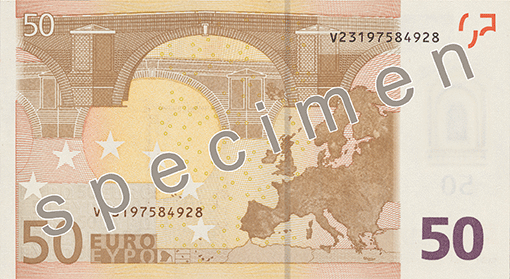
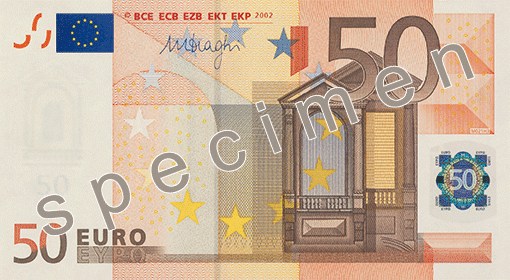
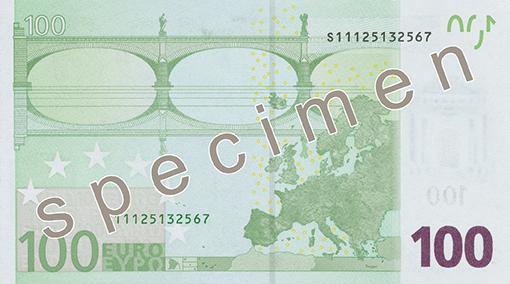
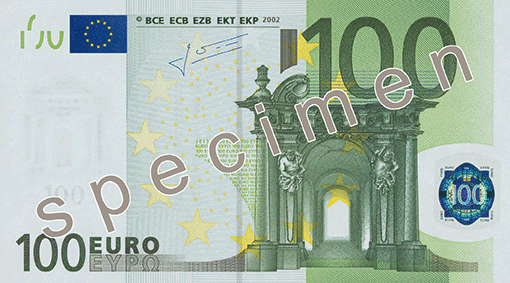
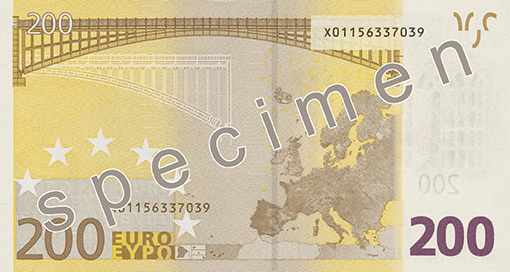
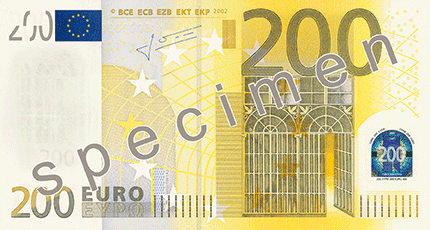
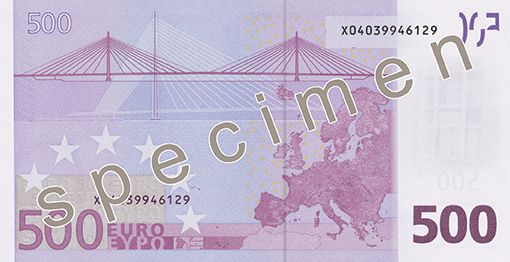
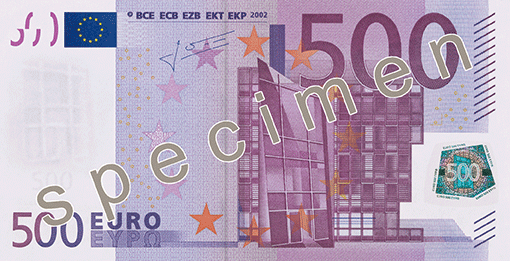
What euro banknotes look like
The euro coins have a common front side and a national back side. The national side indicates the issuing country. Nevertheless, national specific, all of coins can be used to pay in each country member of the Eurozone. The main elements of the design of the national side of the Bulgarian euro coins reproduce the design of the current Bulgarian coins in circulation: the Madara Horseman – on 1, 2, 5, 10, 20, and 50 euro cent coins; St. Ivan Rilski – on 1 EUR coins; Paisiy Hilendarski – on 2 EUR coins, corresponding to the same images used on the current leva coin nominals. Тhe word “евро” (euro) is written in Cyrillic on the 1 EUR and 2 EUR coins. The 1 cent coin bears the word “стотинка” (stotinka), while the 2, 5, 10, 20, and 50 cent coins display “стотинки” (stotinki).
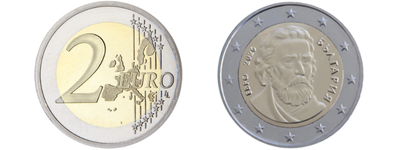
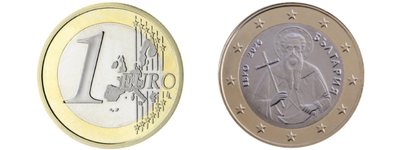
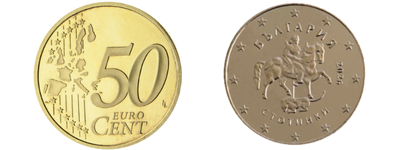
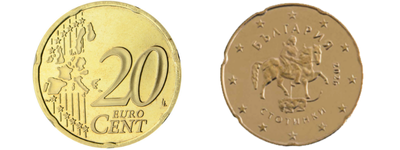
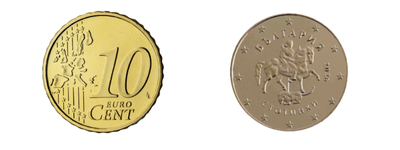
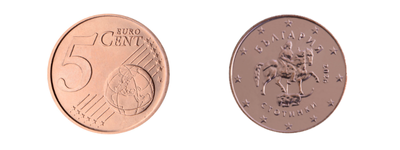
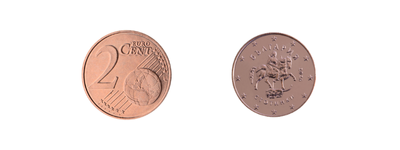
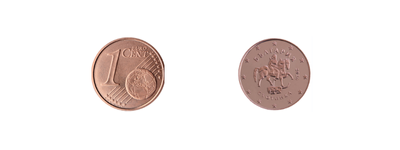
Source of images of the common side of the euro coins: ECB
Frequently Asked Questions
The euro will be adopted as the official currency of Bulgaria on January 1, 2026. On July 8, 2025, the final two steps for the introduction of the euro in Bulgaria became a fact. The European Parliament endorsed our accession to the euro area, and the EU Council adopted the decision for Bulgaria to join the euro on January 1, 2026. The exchange rate between the lev and the euro was also confirmed – 1.95583 leva for 1 euro. Earlier, on June 4, the European Commission and the European Central Bank confirmed in positive reports that Bulgaria is ready to become the 21st member of the euro area.
Bulgaria will adopt the euro at the fixed exchange rate of 1.95583 leva for 1 euro.
The official exchange rate of 1.95583 BGN = 1 EUR is not subject to rounding.
Rounding applies only to the final amount in euro, and only to the second digit after the decimal point (euro cents).
How does rounding work?
- If the third decimal digit is less than 5, the second digit stays the same.
- If the third digit is 5 or greater, the second digit is rounded up by one.
Here are two specific examples:
- If you have 10,000 BGN in your account:
10,000 ÷ 1.95583 = 5,112.919 EUR
→ Final amount: 5,112.92 EUR (the third digit is 9 → rounds up)
- If your monthly loan payment is 865 BGN:
865 ÷ 1.95583 = 442.252 EUR
→ Final amount: 442.25 EUR (the third digit is 2 → remains unchanged)
Yes. For one month after January 1, 2026, both leva and euros can be used simultaneously — this is known as the dual circulation period. During this month, payments in leva will be possible only in cash, while all online payments and bank transfers will be made exclusively in euros. When you withdraw cash from an ATM, you will receive euro banknotes only. During this transition period, merchants are required to give change only in euros. They may return change in leva only if they do not have enough euros available at the time.
Frontloading (initial loading or pre-supply) with euro is the process by which the Bulgarian National Bank supplies commercial banks with euro banknotes, euro coins, and starter kits of euros in advance before the official euro adoption date. Sub-frontloading is the next stage, during which banks begin pre-supplying their business clients – merchants – with euro cash and starter kits containing euro coins. Important: Euro banknotes and coins received through these pre-supply process cannot be used in circulation (e.g., for change or payments) before January 1, 2026. They are intended solely to help businesses prepare for a smooth transition to the new currency.
Sub-frontloading is recommended for all business clients who handle cash on a daily basis (for example, those operating retail outlets that accept cash payments) and who will need to give change in euro during the dual circulation period from January 1, 2026 till January 31, 2026.
To request sub-frontloading, clients are required to sign a contract (based on the bank’s standard template) for the use of the sub-frontloading service provided by the bank.
The starter kit of euro coins contains the following combination of coins, with a total value of €111.
Starter Kit for Retailers
| Denomination (EUR) | Number of Coins | Total Value |
| €2.00 | 25 | €50.00 |
| €1.00 | 25 | €25.00 |
| €0.50 | 40 | €20.00 |
| €0.20 | 40 | €8.00 |
| €0.10 | 40 | €4.00 |
| €0.05 | 50 | €2.50 |
| €0.02 | 50 | €1.00 |
| €0.01 | 50 | €0.50 |
| Total: 320 coins | €111.00 |
For the convenience of our business clients – Merchants (as defined by the Bulgarian Commercial Act), DSK bank will provide packages of euro banknotes in two types: packages worth €500 (100 pcs. X 5 euro) and/or €2,000 (200 pcs. X 5 euro and 100 pcs. X 10 euro).
Merchants will be able to request, based on their specific needs and the number of retail outlets they operate, multiple units of the two types of euro banknote packages, as well as combine them with the euro coin package described above.
No, you don’t need to take any special action — all funds in your lev accounts will be automatically and free of charge converted into euros on January 1, 2026.
No, your account’s IBAN will remain unchanged, as will the internal bank number of the respective account, including for accounts without an IBAN. The currency of the account will be converted to euro.
No. Your debit and credit cards will remain valid until their expiration date, as indicated on the cards themselves.
Cards added to digital wallets like Apple Pay and Google Pay will continue to work as before.
On the date of euro adoption, the daily transaction limits in BGN for business debit and credit cards, as defined in the General Terms and Conditions, will be automatically halved and rounded to the nearest whole number in euro. For example, a 24-hour merchant payment limit under the General Terms and Conditions currently set at BGN 9,000 will become EUR 4,500 after the euro is introduced. The Bank will publish the preliminary euro-equivalent values of the limits set out in the General Terms and Conditions. For daily transaction limits in BGN set manually by the cardholder, the Bank will automatically convert these amounts into euro and round them up to the next higher multiple of EUR 10. For example, if the cardholder has set a custom merchant payment limit of BGN 2,001, it will be halved (EUR 1,000.50) and then rounded up to the next multiple of EUR 10, resulting in a new limit of EUR 1,010.
No, it is not necessary. All BGN accounts will be automatically converted to euro on the day the euro is introduced.
If, on the date of euro adoption, you have payment accounts in both leva and euro with the Bank – free of liens, attachments, or other legal restrictions – you have the right to close one of them and transfer the balance to the other free of charge within 2 months after the euro is introduced. After the two-month period for closing the account expires, the standard account closure fee may apply, as outlined in the Tariff. If the payment account you are closing has a debit balance or an issued credit card, you must settle the outstanding obligation before the account can be closed.
No, there will be no change. From the date of euro adoption, leva fees charged by DSK Bank will be converted into euros at the official exchange rate, applying the rounding rule.
No. The introduction of the euro does not require changes to existing contracts signed in levа. The principle of legal continuity applies, which means:
The introduction of the euro should not affect the validity of existing contracts that refer to the lev or contain references to the lev;
All amounts in leva will be considered as presented in euro at the official exchange rate, with rounding rules applied accordingly;
The introduction of the euro does not lead to any change in the terms of a contract, nor does it release any party from obligations or performance under any contract, nor does it grant any party the right to unilaterally amend or terminate such a contract, unless otherwise explicitly agreed between the parties.
As of the euro adoption date, all loans originally granted in BGN or loans with a euro currency clause will be considered euro-denominated loans. The outstanding balance of each BGN-denominated loan as of 31 December, 2025, including the amount of its monthly installment, will be converted into euro at the fixed exchange rate. The introduction of the euro does not require any changes to existing financing agreements, whether they are in BGN or loans with a euro currency clause.
If your loan has a fixed interest rate, the rate will remain unchanged on the date of euro adoption. If your leva loan has a variable interest rate, the new rate applied after euro adoption cannot be higher than the rate agreed upon before the adoption date.
From January 1, 2026, the euro will become the official currency in Bulgaria. In this regard, DSK Bank will carry out a planned technological upgrade of its systems to prepare your POS terminals to accept payments in euros.
Planned technical interruption: from 9:00 p.m. on December 31, 2025, to approximately 1:00 a.m. on January 1, 2026.
For a physical POS terminal: At 00:00 on January 1, 2026, or upon the terminal's first activation after this date and time, a message will appear on the device's screen saying, "Confirm switching to euro payments. Press the button." Follow the instructions and wait for the process to complete without turning off the device. The terminal will send the final report in leva, print a receipt, and switch to operational mode. Make sure that the screen displays the euro currency. For DSK Bank merchants using POS–cash register interface connectivity: if the currency code of the cash register has not been changed from leva to euro after 00:00 on January 1, 2026, the POS device will return an invalid currency error when attempting to initiate a payment.
For virtual POS terminals: It is necessary to submit the currency code EUR to the virtual POS terminal after January 1, 2026.
For software POS terminals: You will need to update the application version between October 1 and October 31, 2025, for which you will receive a notification via email.
DSK Bank's POS terminals will not support dual display of amounts either on the device screen or on the transaction receipts. Until December 31, 2025, amounts will be displayed in leva; after 00:00 on January 1, 2026, they will be displayed in euros. This applies to all types of terminals. It is the merchant's responsibility to ensure dual display of prices both in the store and on the cash register receipt.
After January 1, 2026, all refunds will be processed exclusively in euros. For transactions made in leva, the refund will be issued in the equivalent amount in euros, converted at the official exchange rate (1 euro = 1.95583 leva). The amount refunded to the cardholder will be debited in euros from the merchant’s account, as it will already be in euros.